Army chief says he ordered forces not to fire on protesters.
Ahammad Foyez, Kamran Reza Chowdhury, Jesmin Papri and Sharifuzzaman Pintu/Dhaka
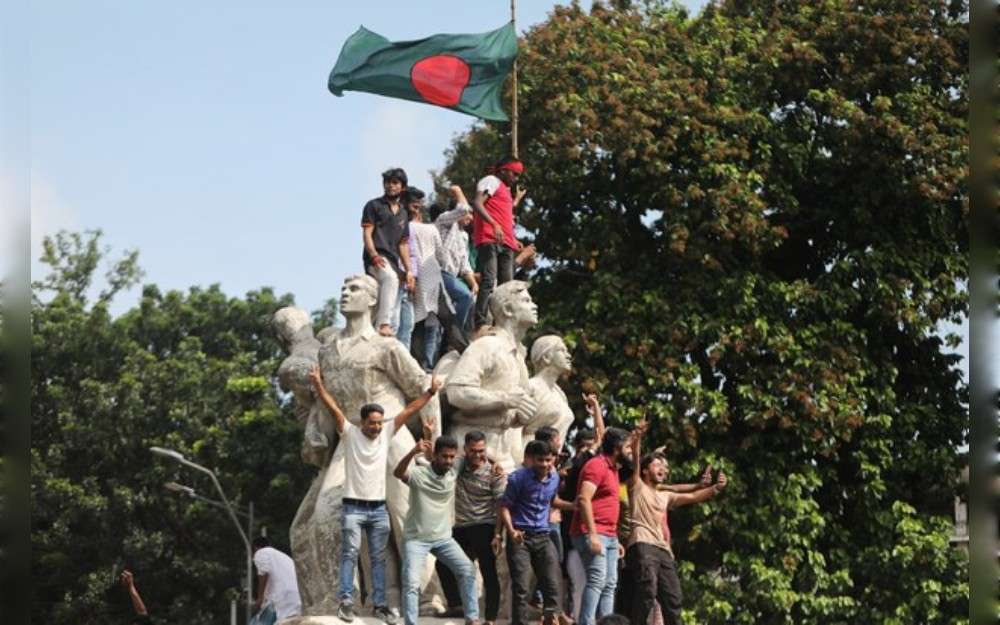
Bangladesh’s Sheikh Hasina has resigned as prime minister, the nation’s army chief announced Monday, in a stunning turn of events as the leader who had held office for 15 consecutive years appeared to give in to student protesters’ demands that she step down.
The announcement came as Dhaka and other cities braced for more violence as thousands of anti-government demonstrators defied a curfew and marched despite the heavy presence of government troops and police officers on the streets.
“Prime Minister Sheikh Hasina has already resigned and we are working to form an interim government,” Gen. Waker-uz-Zaman, the army chief, told reporters at a press conference in front of his cantonment office in Dhaka.
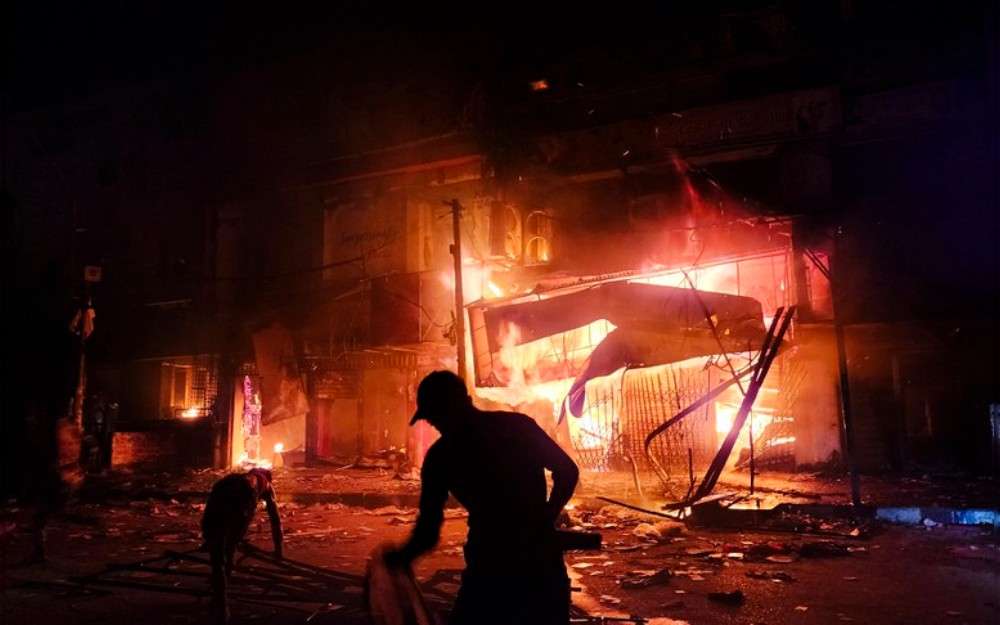
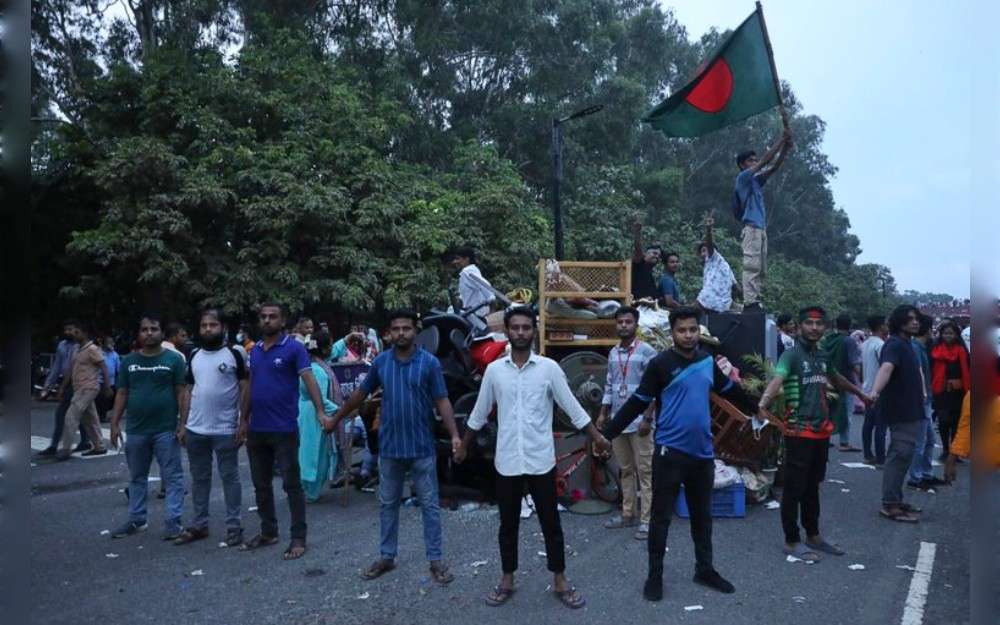
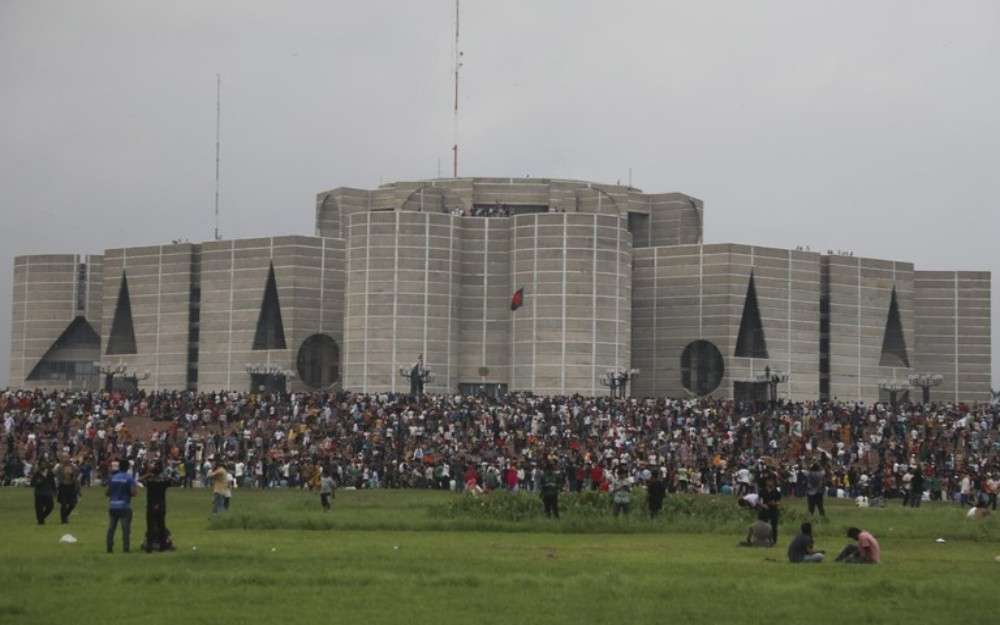
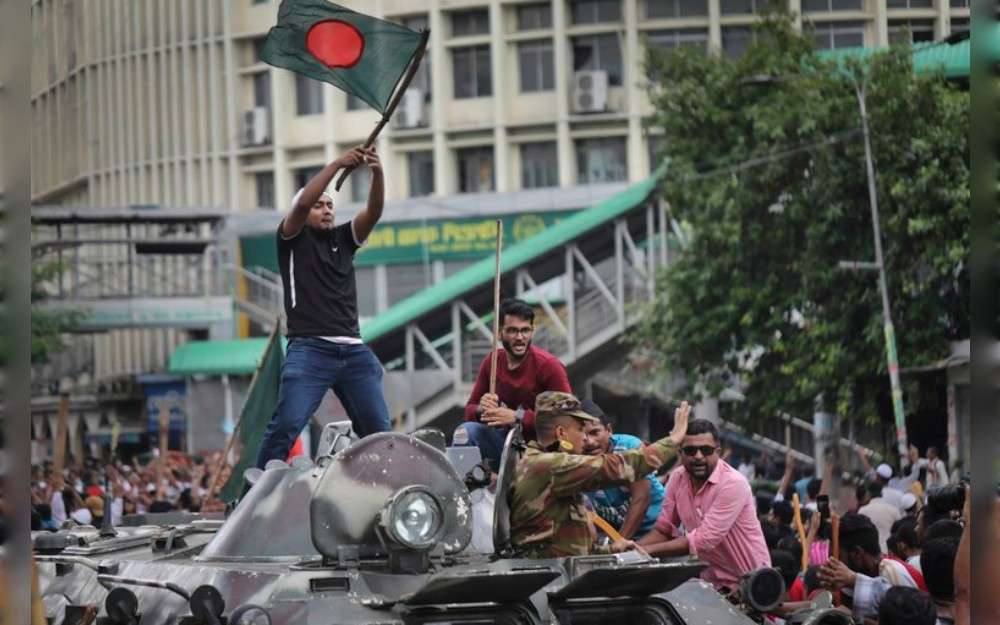
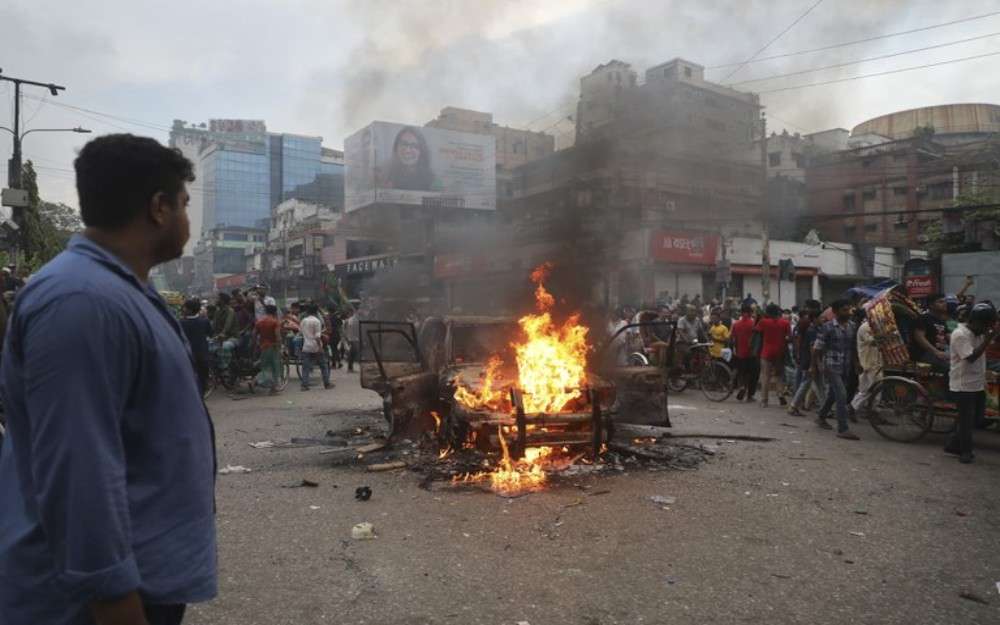
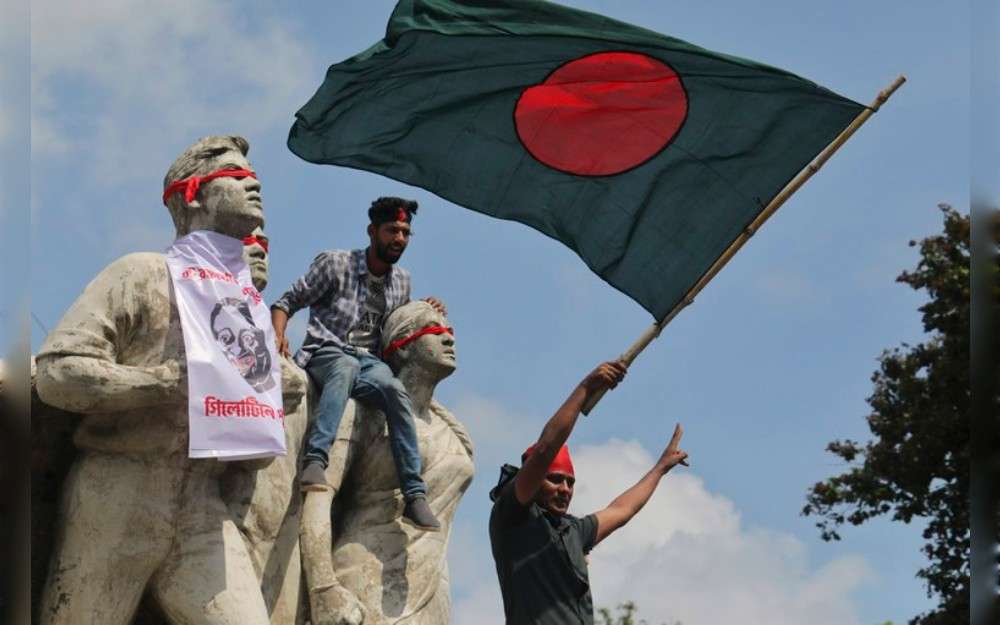
Late-breaking international news reports said Hasina had left Bangladesh, with one report from India saying she had arrived in the neighboring country by helicopter earlier in the day.
Hasina resigned a day after Bangladesh was plunged into the single deadliest day of violence in recent weeks of political tumult. As many as 98 people were killed across the country on Sunday, as students and protesters took to the streets and launched a civil disobedience campaign to demand that Hasina and her government resign over the killings of at least 200 demonstrators during a first phase of protests in July.
“I take all responsibility … justice [is] to be ensured for every killing and other misconducts,” the army chief said.
Gen. Waker-uz-Zaman said he had “ordered the police and army not to open fire,” at the thousands of people out on the streets on Monday.
He said the decision to form an interim administration was taken after discussions with the representatives of major political parties and civil society, although no members from Hasina’s Awami League party were present at the meeting.
“At the meeting, representatives from BNP [Bangladesh Nationalist Party], Jamaat-e-Islami, Jatiya Party were present while no Awami League people attended.
“I will meet the president as soon as possible and will try to form an interim administration. It might take one or two days … please cooperate with us,” the general said.
The protesters were demanding justice for the 212 people who lost their lives during the earlier wave of civil unrest last month, when students staged protests against a quota system for government jobs. It was heavily weighted in favor of children and grandchildren of war veterans who had fought for Bangladesh’s independence from Pakistan in 1971.
As a result of those protests, the Supreme Court’s appellate division slashed quotas for select groups to 7% from 56%, paving the way to make most government jobs merit-based in the country with a high unemployment rate among young people.
Hasina, who had held power uninterrupted since 2009, and her government were reelected in January in national polls that were widely criticized as tainted. In the months leading up to the general election, the opposition BNP had staged massive street protests in 2023 calling on her government to make way for a neutral caretaker administration to run the country during the election transition, but she refused to step down.
On the eve of her departure from office, the 76-year-old PM and daughter of the country’s founding leader, presided over a meeting of the national security council and appeared to order the armed forces and police to come down hard in stopping the protesters from spreading “anarchy.”
“No one of those who now are carrying out violence is a student. They are terrorists,” A.B.M. Sarwer-E-Alam Sarker, the prime minister’s assistant press secretary, quoted Hasina as saying, according to the state-run Bangladesh Sangbad Sangstha (BSS) news service.
Copyright ©2015-2024, BenarNews. Used with the permission of BenarNews.














